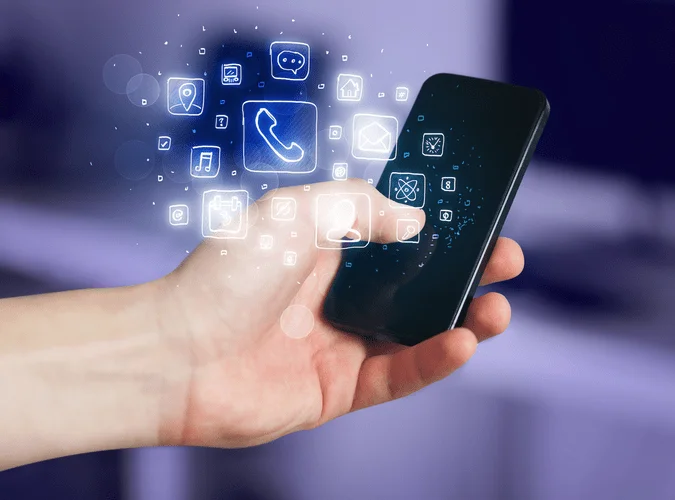The healthcare landscape is closely influenced by digital tools and technological developments, with physicians adapting to the industry’s evolving calls for, similar to virtual care. For a while, Digital Well Being Data (EHRs) have represented one of the important technological leaps, putting varied capabilities right into a single system. Nonetheless, challenges remain – making healthcare methods work together is hard because of dispersed affected person knowledge. Usability points and issues about EHRs contributing to clinician burnout additionally complicate the landscape. From distant consultations to real-time vitals tracking, IoT brings pace, accuracy, and proactive decision-making into the hands of healthcare professionals.
Add To Collections
Overcoming these challenges requires collaboration between device manufacturers, software program developers, and healthcare suppliers. These units remind sufferers to take their drugs at the prescribed occasions and notify caregivers if a dose is missed. Some advanced methods even adjust treatment schedules based on patient data, ensuring optimum therapeutic outcomes. Medicine non-adherence is a significant challenge in healthcare, resulting in poor patient outcomes and elevated prices.

The integration of multiple kinds of devices causes hindrance in the implementation of IoT within the healthcare sector. The cause behind this hindrance is that gadget producers haven’t reached a consensus concerning communication protocol and requirements. With the rise in inhabitants, healthcare companies have been costlier than ever. It has created havoc on the lives of needful, who are in general want of assist healthcare. ValueCoders helps you implement innovative IoT applications to satisfy evolving healthcare calls for.
At the same time, this information is distributed to the cloud so that docs can swiftly reply to an emergency scenario and provide well timed care. What do you want from IoT-based options similar to distant patient monitoring, VR in healthcare, or hospital automation? Setting measurable goals ensures IoT adoption aligns with healthcare wants, enhances affected person care, and delivers cost-effective results. IoT options in healthcare, like wearables or remote affected person monitoring devices, enable patients to check their health standing from anywhere. This improves proactive care by lowering the necessity for frequent hospital visits.
AI-powered IoT units analyze patient information to detect early signs of diseases. By figuring out potential well being dangers earlier than symptoms appear, smart healthcare options enhance preventive care and reduce hospitalization rates. Cloud-based IoT healthcare solutions present unlimited scalability, allowing hospitals to increase their digital capabilities without infrastructure limitations. Cloud storage ensures secure, distant access to patient information, making healthcare providers extra environment friendly and versatile. WHOOP makes wearable units that connect with a mobile app so individuals can access insights about their health and health. The units function a screen-free design and capture biometric knowledge whereas they’re worn on a user’s wrist all through the day, together with IoT in Healthcare while a person is asleep.

Healthcare IoT devices are potential targets for cyberattacks, and breaches can result in unauthorized entry to delicate patient data, disruption of providers, and even hurt to patients. IoT permits the implementation of predictive maintenance strategies for medical tools. Related sensors can monitor the condition of devices, predicting when upkeep is required to stop tools failures. This approach reduces downtime, enhances tools lifespan, and ensures the supply of crucial medical instruments. Huge volumes of patient data can overwhelm healthcare suppliers, resulting in misinterpretation or delays in decision-making.
Ai, Ml And Knowledge Science
It ensures secure knowledge sharing between providers while maintaining affected person privateness, lowering fraud, and bettering compliance with healthcare rules. The impact of IoT in healthcare through 5G aids in improving low-latency through ultra-fast connectivity. This will improve real-time healthcare operations, like robotics surgical procedures or telemedicine providers. The introduction of IoMT has transformed traditional healthcare practices into smart, connected tools that enhance affected person care. Gadgets like sensible ventilators or infusion pumps reduce errors and enhance operational agility. Whether wearables monitoring metrics or devices alerting doctors earlier than operations, IoT is reshaping digital transformation in healthcare like by no means before.
We will also discover some challenges that hospitals encounter when adopting these solutions and find out about the means ahead for this expertise in hospitals. The application layer interprets and applies data and is answerable for delivering application-specific providers to the person 12. Some of the most promising medical purposes that IoT offers are through synthetic intelligence (AI). The scientific purposes of AI have proliferated, together with picture evaluation, textual content recognition with pure language processing, drug exercise design, and prediction of gene mutation expression 53. IoT might help https://www.globalcloudteam.com/ in automating healthcare and patient healthcare workflow via healthcare mobility options.
- IoT facilitates the expansion of telemedicine by offering the infrastructure for remote consultations.
- The Internet of Issues for healthcare is not going to solely be used by hospitals or services, but also by surgical centers, research organizations, and even governmental establishments.
- Hospitals that start their IoT journey now will lead the cost in remodeling healthcare.
- Continuous monitoring allows early detection of health points, leading to timely interventions.
What Are The Functions Of Iot In Healthcare?
A smartphone with the right set of healthcare apps may help you detect diseases and enhance your health. Some examples of these are skin most cancers detection apps that use your digital camera and AI-driven algorithms to map moles in your pores and skin. The market of IoT in healthcare is predicted to exceed $10 billion by 2024, in accordance with a Brandessence market analysis. IoT is slowly getting traction and evolving alongside the model new ultra-fast 5G cellular wi-fi, Artificial Intelligence (AI), and Massive Knowledge. Combing this powerful applied sciences with the Web of Things will doubtless revolutionize the healthcare trade.
The rollout of 5G networks will improve the velocity and reliability of IoT gadgets, enabling more refined functions. AI-driven IoT techniques will provide deeper insights and predictive capabilities, reworking healthcare from reactive to proactive care. As Soon As you allow real-time monitoring, IoT expertise facilitates healthcare providers’ response with out taking an extreme amount of time to handle health issues.
Medical IoT units gather very important indicators of any illness and switch that data to medical doctors for real-time monitoring, whereas dropping notifications to people about critical components via mobile app technology and smart sensors. So, in healthcare, IoT-based healthcare techniques acquire a wide selection of affected person knowledge and get inputs from medical doctors and medical professionals. ZOLL presents a selection of gadgets and wearables to help patients with their health wants on the go. The company’s cardiac monitor repeatedly E-commerce tracks patient heart rhythms and information medical arrhythmias. The gadget helps patients keep linked to their doctors by mechanically sending alerts of a cardiac event to their healthcare supplier.